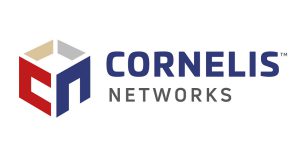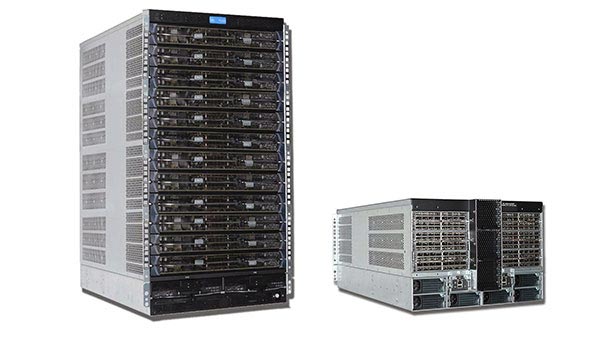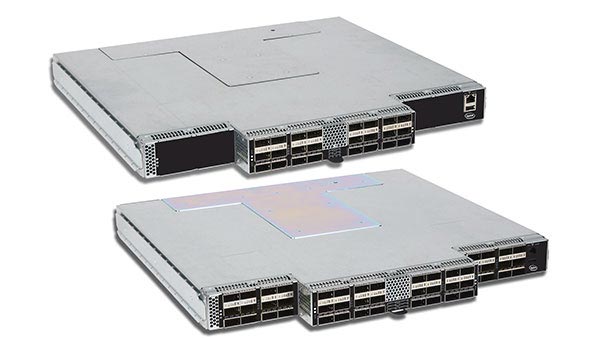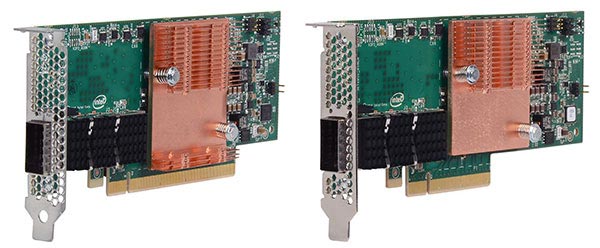Cornelis Networks Omni-Path*
*Previously Intel Omni-Path
*Previously Intel Omni-Path
Cornelis Networks Omni-Path Architecture (Cornelis Networks OPA), an element of Cornelis Networks Scalable System Framework, delivers the performance for tomorrow’s high performance computing (HPC) workloads and the ability to scale to tens of thousands of nodes—and eventually more—at a price competitive with today’s fabrics. The Cornelis Networks OPA 100 Series product line is an end-to-end solution of PCIe adapters, switches, cables, and management software. As the successor to Cornelis Networks True Scale Fabric, this optimized HPC fabric is built upon a combination of enhanced IP and Cornelis Networks technology.

Current standards-based high performance fabrics were not originally designed for HPC, resulting in performance and scaling weaknesses that are currently impeding the path to Exascale computing. Cornelis Networks Omni-Path Architecture is being designed specifically to address these issues and scale cost-effectively from entry level HPC clusters to larger clusters with 10,000 nodes or more. Cornelis Networks is using the industry’s best technologies including those acquired from QLogic and Cray alongside Cornelis Networks technologies.
The enhancements of Cornelis Networks OPA will help enable the progression towards Exascale while cost-effectively supporting clusters of all sizes with optimization for HPC applications at both the host and fabric levels for benefits that are not possible with standard designs.
Adaptive Routing
Adaptive Routing monitors the performance of the possible paths between fabric end-points and selects the least congested path to rebalance the packet load.
Dispersive Routing
Cornelis Networks Omni-Path Fabric supports a variety of routing methods, including defining alternate routes that disperse traffic flows for redundancy, performance, and load balancing.
Traffic Flow Optimization
Traffic Flow Optimization optimizes the quality of service beyond selecting the priority—based on virtual lane or service level—of messages to be sent on an egress port.
Packet Integrity Protection
Packet Integrity Protection allows for rapid and transparent recovery of transmission errors between a sender and a receiver on an Cornelis Networks Omni-Path Architecture link.
Dynamic Lane Scaling
Dynamic Lane Scaling allows an operation to continue even if one or more lanes of a 4x link fail, saving the need to restart or go to a previous checkpoint to keep the application running.

Cornelis Networks Omni-Path Director Class Switches, an element of the Cornelis Networks Scalable System Framework, are part of an end-to-end product family for HPC fabrics that delivers high performance with breakthrough cost models. Cornelis Networks Omni-Path Architecture (Cornelis Networks OPA) builds on proven technologies from Cornelis Networks True Scale Architecture, the Cray Aries interconnect, and open source software to provide an evolutionary on-ramp to revolutionary new fabric capabilities.
Learn More
Cornelis Networks Omni-Path Fabric Edge Switches, an element of the Cornelis Networks Scalable System Framework, are part of an end-to-end product family for HPC fabrics that delivers high performance with breakthrough value. The Cornelis Networks Omni-Path Architecture uses proven technologies from Cornelis Networks True Scale Architecture, the interconnect by Cray Aries, and open source software to provide revolutionary new fabric capabilities.
Learn More
Cornelis Networks Omni-Path Host Fabric Interface Adapters, designed specifically for HPC, the Cornelis Networks Omni-Path Host Fabric Interface (Cornelis Networks OP HFI) uses an advanced connectionless design that delivers performance that scales with high node and core counts; making it the ideal choice for the most demanding application environments. Cornelis Networks OP HFI supports 100 Gbps per port, which means each Cornelis Networks OP HFI port can deliver up to 25 GBps per port of bidirectional bandwidth.
Learn More